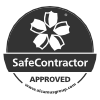Severn Trent Services teams will tell you that in the world of water and wastewater, the fewer alarms, the better.
Alarms are triggered by devices installed on assets that measure their performance. When they go off, it can mean there’s a problem with an asset. Levels in a service reservoir may have dropped, or perhaps there’s a disinfection issue.
The positive is that private water and wastewater networks can be monitored remotely – despite how many alarms are raised. Monitoring helps to maintain good quality water supplies, and as technology evolves, devices provide a rich source of trend data that can inform operational, financial, and sustainability strategies.
But with mobile providers switching off their 3G networks by 2025, connectivity risks must be managed. That’s why Severn Trent Services is transforming its approach to telemetry.
Mick Jones, an engineer at Severn Trent Services, said: “We’re gearing up for the proliferation of 4G and 5G networks by exploiting clever software and devices to revolutionise how we manage our customer’s water and wastewater assets.
“By upgrading our telemetry, we can unlock greater information and make more intelligent decisions about how we do many things, including how we respond to alarms. And what’s great is that more people can access this data via their smartphones, laptops, or handhelds – rather than relying on a central team to manage it.
“Customers are astounded by the information we can gather about their private water and wastewater networks. They think its intelligence reserved only for public networks.”
Apprentices are sending the right signals
Severn Trent Services looks after thousands of water and wastewater assets for organisations up and down the country, providing exciting opportunities for apprentices to get involved in the telemetry upgrade programme alongside their long-standing colleagues.
Keeping this work in-house saves a significant amount of money and allows employees to become upskilled to continually develop the telemetry system going forward.
Matt Booth is a maintenance technician apprentice. He’s successfully installed brand-new monitoring devices to critical parts of asset infrastructure that send signals back and forth – over mobile networks – to Mick’s team and his colleagues in the field.
Matt said: “The telemetry devices we’re installing can be attached to various assets. From entire water treatment works with several inputs and outputs, where the devices receive signals at many different points.
“Right through to smaller assets like oil-water interceptors where probes can identify dangerous chemicals in the tanks which trigger an alarm to prevent a fuel leak.”
“It’s an important and exciting programme to be working on. Without this insight, there could be catastrophic consequences for water supplies.”

Driving down rogue alarms
When the devices raise an alarm, the Severn Trent Services team respond based on the alarm’s rating.
Mick said: “It’s determined by criticality and failure. We might need to get to our customer’s site immediately, or it might mean we can wait until the next working day.”
But the upgrades in telemetry have already started to challenge this. Mick continued: “In the past, there might have been some rogue alarms. This is where our teams have downed tools, hurried along to our customer’s site, only to discover there was no action to take.
“However, with our new telemetry, we’re building a more comprehensive picture of an asset – informed by historical data, trends, and intelligent alarms – which dictates how we react.
“ Just like the human body, I suppose! If a doctor has a complete view of a person’s physiology and medical history, it changes how and when they treat you. A spike in a health metric might be normal for one person and abnormal for another.
“Trend data is transforming how we work, and when you add the rich knowledge our people on site have about the assets they manage, it enables us to deliver a more efficient and effective service to our customers.”
Driven by technology but sustainably led
Jim Holland manages the MEICA (Mechanical, Electrical, Instrumentation, Control, and Automation) teams in Severn Trent Services, who ensure water and wastewater assets run effectively, compliantly, and safely.
He believes that the transformation in telemetry will be a game-changer for sustainability, not only helping Severn Trent Services to improve its environmental performance but helping customers to do the same.
Jim explains: “Combining new technology with intelligent data – and expertise to interpret that data – brings many environmental benefits.
“For example, if we can reduce face-to-face visits, we also reduce the miles our teams travel, which drives down our emissions.
“Data can also drive decisions to reduce the energy required to power our customer’s assets.”








